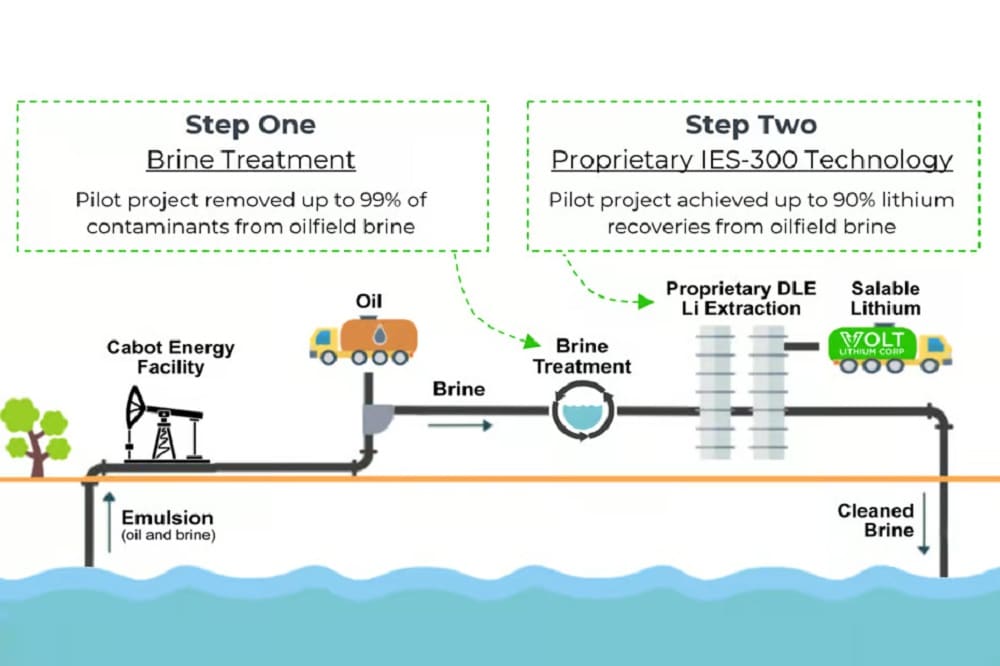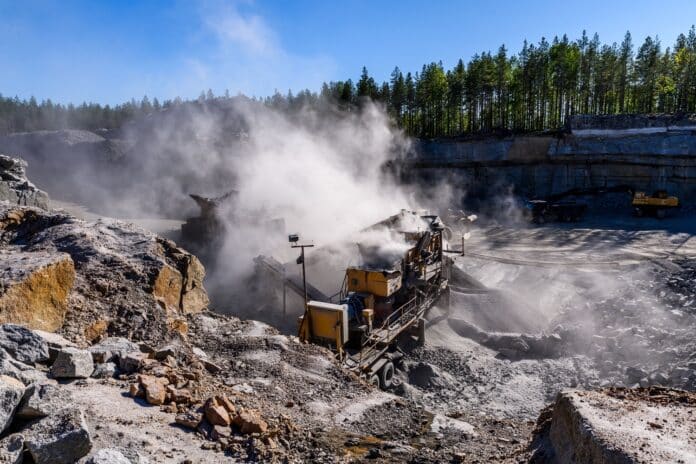A Canadian company Volt Lithium has introduced and pilot-tested a new proprietary direct lithium extraction (DLE) technology achieving 90% recovery rates from brines with lithium concentrations as low as 34 mg per liter.
The company also simulated operating conditions at concentrations of 120mg/L and achieved recoveries of up to 97% with operating costs under CAD$4,000 per tonne, assuming sustained average annual production of 20,000 tonnes (tpa) of lithium hydroxide monohydrate (LHM).
Further, in an unprecedented result, the Pilot Project proved Volt’s DLE technology can maintain 90% lithium recoveries in concentrations as low as 34 mg/L and still maintain commercial economics, an achievement that has yet to be reported by other lithium producers. The Pilot Project enables Volt to verify the extraction capabilities of its IES-300 technology and to determine operating costs for the DLE process, a key factor in determining viability for commercial applications and ultimate profitability.
Volt’s proprietary DLE technology involves a two-stage process to extract lithium from oilfield brine. In Stage One, the oilfield brine is treated using proven equipment and established processes. During the Pilot Project, Volt confirmed the ability to effectively remove up to 99% of contaminants in the preparation of clean brine for the DLE process. This is critical as having contaminants in the brine causes interference during the DLE process and can lead to uneconomic processes.

Stage Two uses the company’s proprietary IES-300 technology to extract lithium from the brine, which is concentrated down into a lithium chloride solution that will ultimately be upgraded to LHM, an essential raw material required for batteries and, in particular, electric vehicle batteries. Volt’s IES-300 technology reduces the amount of reagent required to treat oilfield brine as it enters the extraction process.
“Through the Pilot Project, the Company simulated a number of operating conditions and various cycle times for its proprietary IES300 technology in order to determine the parameters for eventual commercial operations and confirm IES-300 was robust enough to successfully extract lithium from the lowest concentration brine in oilfields and other reservoirs,” read the company press release. “This technological discovery effectively opens up multiple oilfield reservoirs across North America that can now offer commercial lithium extraction using Volt’s proprietary DLE process.”
Volt’s R&D and operational team believe the operating conditions have been successfully achieved for lithium extraction culminating in a successful Pilot Project.
In the next step, the company will now look to establish a permanent pilot plant in order to continue refining its IES-300 technology, test the optimization of reagent usage, and continue to improve operating conditions with the goal of continually driving down operating costs to achieve improved economics that underpins commencing commercial operations.
The company will also focus on upgrading its resource estimate and commencing the preparation of a Preliminary Economic Assessment based on the successful extraction and operating results of this Pilot Project. In addition, Volt will advance the engineering design phase to determine the optimal commercial parameters for its DLE process, which will ultimately support the achievement of commercial production by the second half of 2024.
